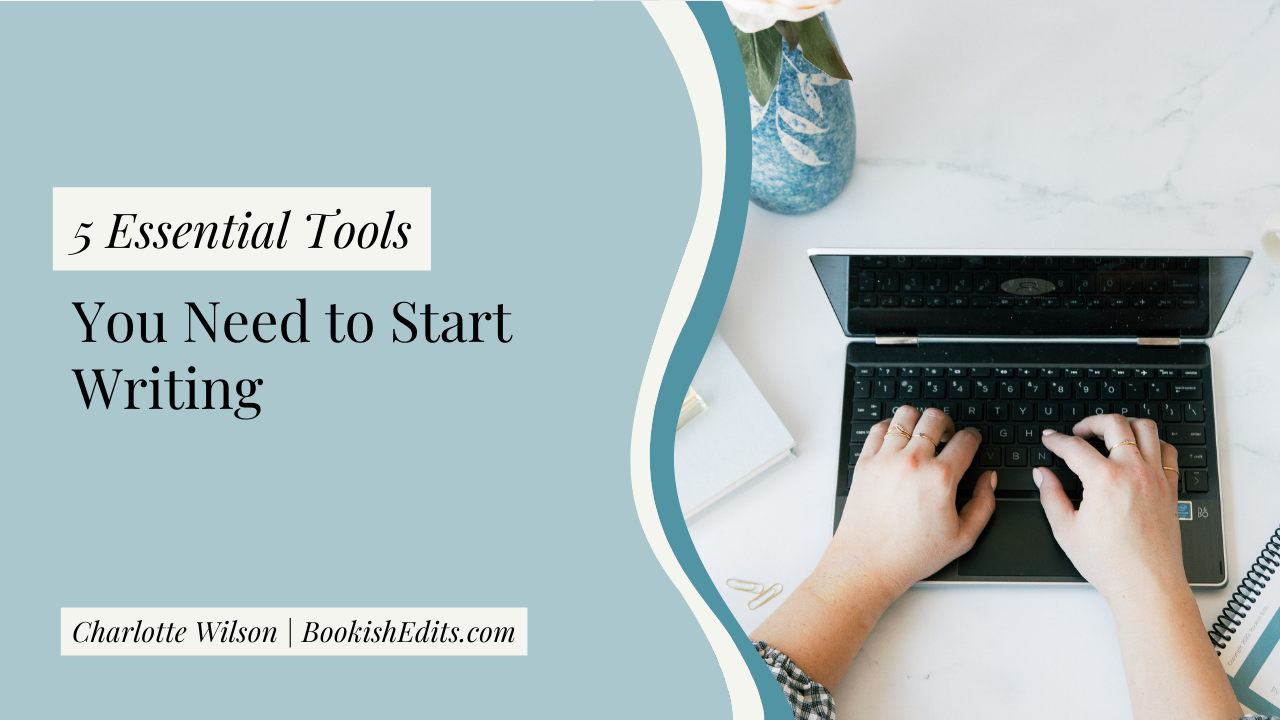5 Essential Tools You Need to Start Writing
I am that person who studies the restaurant menu before heading out for the night. I’m the one who has detailed packing lists and makes a point to remember garbage bags for the roadtrip because just a few hours in the car somehow generates a dumpster’s worth of trash. It’s no surprise that when it comes to writing, I like to be prepared with all of the tools I need to set up a smooth writing process and focused first draft. Today I want to share them with you.
A focus
You want your manuscript to have a focus. If your story doesn’t have a focus, you’ll be hard-pressed to find a reader who will want to stick with you. I tell my writers that their focus needs to include three elements: an idea, a transformation, and stakes (something to lose). When your focus can incorporate all three of those things, you’re setting yourself up to write a compelling manuscript!
A reader
Who are you writing for? Because the hard truth is that you can’t write for everyone. When you know your reader, you know how to tailor your words and message to what they need. The best part about knowing your ideal reader is that you’ll inevitably draw in readers who fall outside of your ideal parameters, and they’ll be able to interact with your story in a different way. Knowing your reader empowers you to make the informed choices about what you write and how you write it.
A core message
With my writers I call this a thesis, but the concept is the same. Why are you writing what you’re writing? Why do you care? Why do you want your reader to care? Using your core message to direct your story will make your writing more focused and straightforward. A core message preempts distracted writing or unnecessary rabbit trails. And knowing your core message before you start writing? Golden.
A conviction
As an editor, one of my favorite roles is that of cheerleader. I love giving my writers good feedback and pumping them up. But my compliments can go only so far. If my writer doesn’t believe in the message of their story, their manuscript will suffer. I can’t edit heart and conviction into a manuscript. That’s on you as the writer. When you believe in the power and importance of your story, you can write a book that with staying power that can impact real people in meaningful ways.
A support person
I’ve met with writers who are nervous about telling people that they want to write. I get it. Writing is a vulnerable act, and letting someone in on your dream can feel risky. But here’s the thing: writing was never meant to happen in a vacuum. A support person will be there to remind you that your dream matters and to cheer you on when you’re ready to call it quits. A support person can be a partner, mentor, friend, or yes, even an editor. Don’t try to go at this alone—you don’t have to!
For those of you prepping to start your next writing project (or to those trying to regroup and regain some writing momentum), consider adding these basics to your toolkit. Establishing that writing foundation will set you up not only for a smoother writing experience, but also a more straightforward road to a manuscript that you can be proud of. We deep dive all of this and more in my program, The Memoir Method. To learn more about the program and when doors are open, head here.


